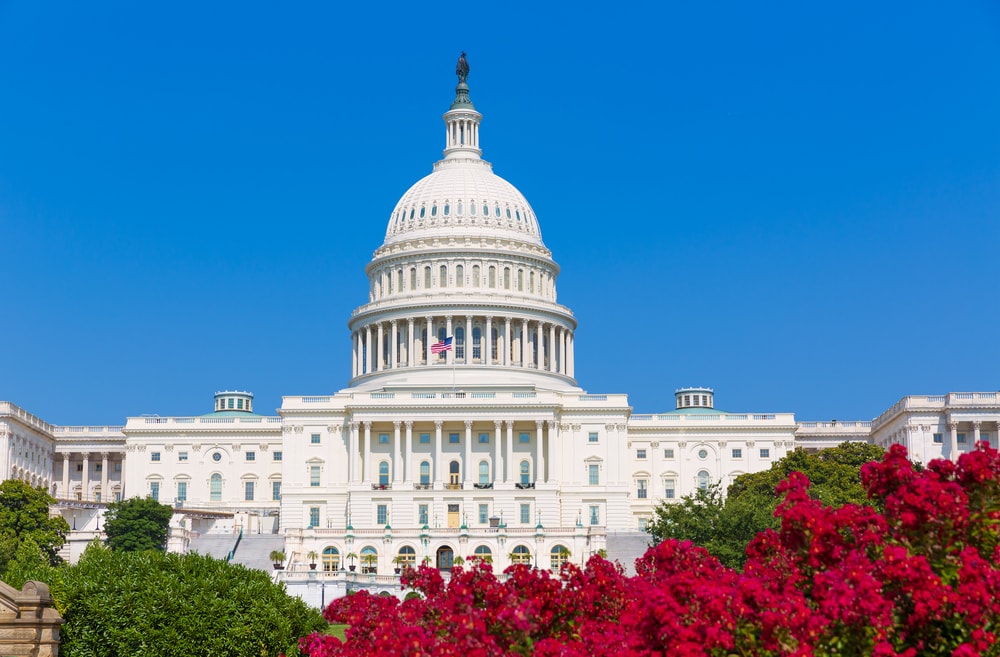Republicans want to attach Ted Cruz’s internet governance language to the government-funding bill. It could blow up in their faces.
SOURCE: Giphy
Sept. 30 marks the end of the federal government’s fiscal year, which means both Republicans and Democrats in Congress must pass a continuing resolution (CR) to avoid another government shutdown.
Several issues currently under discussion could be attached to the CR. In particular, an effort led by Sen. Ted Cruz, R-Texas, seeks to include language to stop the plan for the U.S. government to give up its last vestiges of formal authority over internet governance. Other conservative politicians, including Donald Trump, have recently joined in expressing opposition to the transition moving forward.
Cruz argues that conservatives must unite to stop Obama from “giving away the internet” and empowering “countries like Russia, like China, like Iran to be able to censor speech” online (a claim that earned three Pinocchios from The Washington Post).
While Cruz has been on the right side of some important internet-policy issues in recent years (like mass surveillance and internet taxation), in this case, there are good reasons for Republicans to be wary of jumping on his bandwagon:
- Conservative scholars don’t actually think we’re ‘giving away the internet’
Even groups like the Heritage Foundation and TechFreedom, who have been ardent skeptics of the transition moving forward as planned, are still pro-transition. Furthermore, many of their objections could be fixed by congressional authorization. There’s no need blow up the deal and cause the United States to lose ground in international fora, like the upcoming Dec. 18 World Internet Conference.
- In fact, most free-market internet policy scholars are pro-transition
As free-market public policy professor Milton Mueller of Georgia Tech (who wrote the book on the subject) writes at the Internet Governance Project, objections to the transition don’t hold water and obstructing it would have serious consequences:
The U.S. has determined that the proposal generated by the internet community meets its clearly stated criteria. If the U.S. reneges now, it would destroy its own credibility and throw the whole nongovernmental model upon which the ICANN regime is based into chaos and uncertainty.
Mercatus Center Technology Policy Program Director Eli Dourado writes that blocking the transition likely would have the opposite effect of what critics intend, by undermining U.S. leverage and empowering multilateral state governance:
According to a countdown clock from Sen. Ted Cruz, there are less than three weeks until the Obama administration puts the internet at risk from takeover and censorship by China, Russia and Iran. This conspiratorial fearmongering is, frankly, absurd.
Cato Institute Senior Fellow Julian Sanchez has argued that the transition really shouldn’t be controversial or surprising to anyone who has been paying attention, adding that fears of censorship are overblown, since ICANN is a poor mechanism for it:
Some of the reporting on this makes it sounds like somehow ICANN is kind of the governing body of the internet, when really the internet is a much more decentralized thing than that … ICANN was formed in 1998 and was always sort of supposed to be a transitional body. That is to say, it was always the idea from the get go that the United States understood this was a global network and it wasn’t going to permanently have a role in maintaining any kind of oversight over the internet … This is an announcement that we are finally going to get around to do something that we essentially said we were going to do 15 years ago.
Niskanen Center Policy Analyst Ryan Hagemann argues that it’s time for the United States to move on with the transition:
We have much to lose and little, if anything, to gain by stonewalling on the IANA transition. At this point, Congress should refrain from inserting itself into this dialogue.
And as we at R Street previously have written, while there are some legitimate concerns, the balance of evidence is strongly in favor of moving forward with the transition:
Some conservatives claim Obama is ‘giving away the internet.’ In reality, the internet isn’t ours to give away. If Congress blocks the transition, it will only make it more likely that the internet will be hijacked by authoritarian governments and special interests.
- Industry experts agree
Andrew Sullivan, chair of the Internet Architecture Board, has criticized Cruz’s claims: “It sounds like a fairy tale to anyone who understands how the internet works.”
Both Tim Berners-Lee, inventor of the World Wide Web and professor at the Massachusetts Institute of Technology, and his colleague Daniel Weitzner discredit Cruz’s argument that handing ICANN over to a multistakeholder model will harm free speech. ICANN supervises domain names, whereas network operators and platforms are responsible for the flow of internet traffic and access to content. Thus, ICANN does not have power over individual speech online.
Furthermore, they highlight that the United States is being hypocritical by in effect “censoring” the ability of internet stakeholders to make decisions about ICANN. These stakeholders are a voluntary network of private organizations, including civil society groups, internet companies and engineers.
Internet companies – including Amazon, Facebook, Google and Twitter, as well as several trade associations – wrote a Sept. 13 letter to Congress supporting the transition. The U.S. Chamber of Commerce released a statement of support earlier this year, as well. Michael Beckerman, president of the internet Association, a trade organization that represents top internet companies, stated:
The transition plan aligns the interests of internet users, prevents capture by any one stakeholder group or government such as China and Russia, and lays the foundation for a stable and secure internet.
- You don’t have to like ICANN itself to be pro-transition
ICANN (formally, the Internet Corporation for Assigned Names and Numbers) is not a perfect organization. Among other things, it should be more transparent, have more accountability mechanisms and do a better job limiting mission creep. But keeping it under contract with the U.S. National Telecommunications and Information Administration will not make it one. The multistakeholder model is the best option to maintain oversight of the Internet Assigned Numbers Authority (IANA) functions and keeping the integrity and freedom of the internet intact. As Mueller writes:
If the U.S. reneges now, it would destroy its own credibility and throw the whole nongovernmental model upon which the ICANN regime is based into chaos and uncertainty. And ICANN would remain the same, the same bad old ICANN that it was before. So what’s the point of this 11th hour game?
- Attaching delay language to the CR isn’t the right way to move policy
It’s far from clear that conservatives are united around Cruz’s effort to block the transition and keep IANA permanently under U.S. authority. For instance, his bill (S. 3034) to stop the transition only has six co-sponsors and has not been able to move forward on its own merits. Attaching it to a funding bill in a last-minute backroom negotiation is not the right way for conservatives to move policy. Indeed, this transition has also been in process for nearly two decades. As it usually is, 11th hour brinkmanship is the wrong approach.
- Conservatives would lose the messaging war in the event of a government shutdown
It seems unlikely that president Obama would veto a government-funding bill and risk shutting down the government over ICANN. But, hey, it’s an election year, and anything could happen if one side or the other thinks it would help their own party in November. Plus, it would be easy for Democrats to point the finger at Republicans for holding up the government with an overblown issue.
Compared to other concerns, the issue of internet governance is not at the forefront of public consciousness. Conservative Rep. Mark Sanford, R-S.C., said “This internet issue is not on the front burner … the Syrian refugee piece resonates more back home.” It isn’t likely that the issue can rally Republican supporters like Obamacare did in 2013. The IANA transition isn’t a real grassroots issue; it’s AstroTurf fabricated to serve a political purpose.
Democratic House members Frank Pallone of New Jersey and Anna Eshoo and Doris Matsui, both of California, along with Sens. Brian Schatz of Hawaii and Chris Coons of Delaware, already have seized this opportunity to criticize conservatives. They write in TechCrunch:
Congressional Republicans have recently taken a new hostage in their never-ending stream of threats to shut down the government. This time, their target is the transfer of control of usually unseen clerical functions that keep the internet working. Somehow this arcane transition has become one of the major hurdles to funding the government
The members added that:
Nearly every technical expert agrees that Senator Cruz’s claims are simply not true. As the professionals explain, administration of the domain name system is clerical and has nothing to do with manipulating content … If the transition fails, some governments may also try to create a new numbering system, fracturing the internet as we know it. Such an approach would effectively destroy the “world-wide-web” by creating walled-off pieces of the internet in countries that want to prevent their citizens from communicating with the free world.
Indeed, the facts are in their favor. The industry is on their side. And nearly all technical experts agree. It’s likely Republicans will come out on the losing end if this issue becomes even more politicized.
- Conclusion
No matter what happens Oct. 1, regular users of the internet won’t notice a difference. IANA functions probably matter a lot less to the performance of the internet we experience than conservative activists seem to believe. Accepting ICANN’s domain name registry system has always been a voluntary arrangement. If key global stakeholders wanted to adopt a different system (or systems), they could do so – potentially leading to a balkanized internet.
Furthermore, delaying the transition will mean that the accountability measures detailed in the transition proposal may not go into effect. These mechanisms include the oversight of a 29-member empowered community and limitations on the power of the Government Advisory Committee. If these have to be relitigated, the next proposal may have even fewer checks and balances.
While the United States does not have control over the internet, we do have influence over how countries approach internet governance. Wasting this influence would be a mistake. While Sen. Cruz and his allies do seem to be motivated by a desire to sustain U.S. leadership, brinksmanship over the transition will do more to limit our leadership than to accentuate it. The best way to keep the internet out of the hands of authoritarian governments is to move forward with the transition. The alternative is to empower proponents of multilateralism who want greater state control, which really would be giving away the internet.
Featured image by ESB Professional / Shutterstock.com










